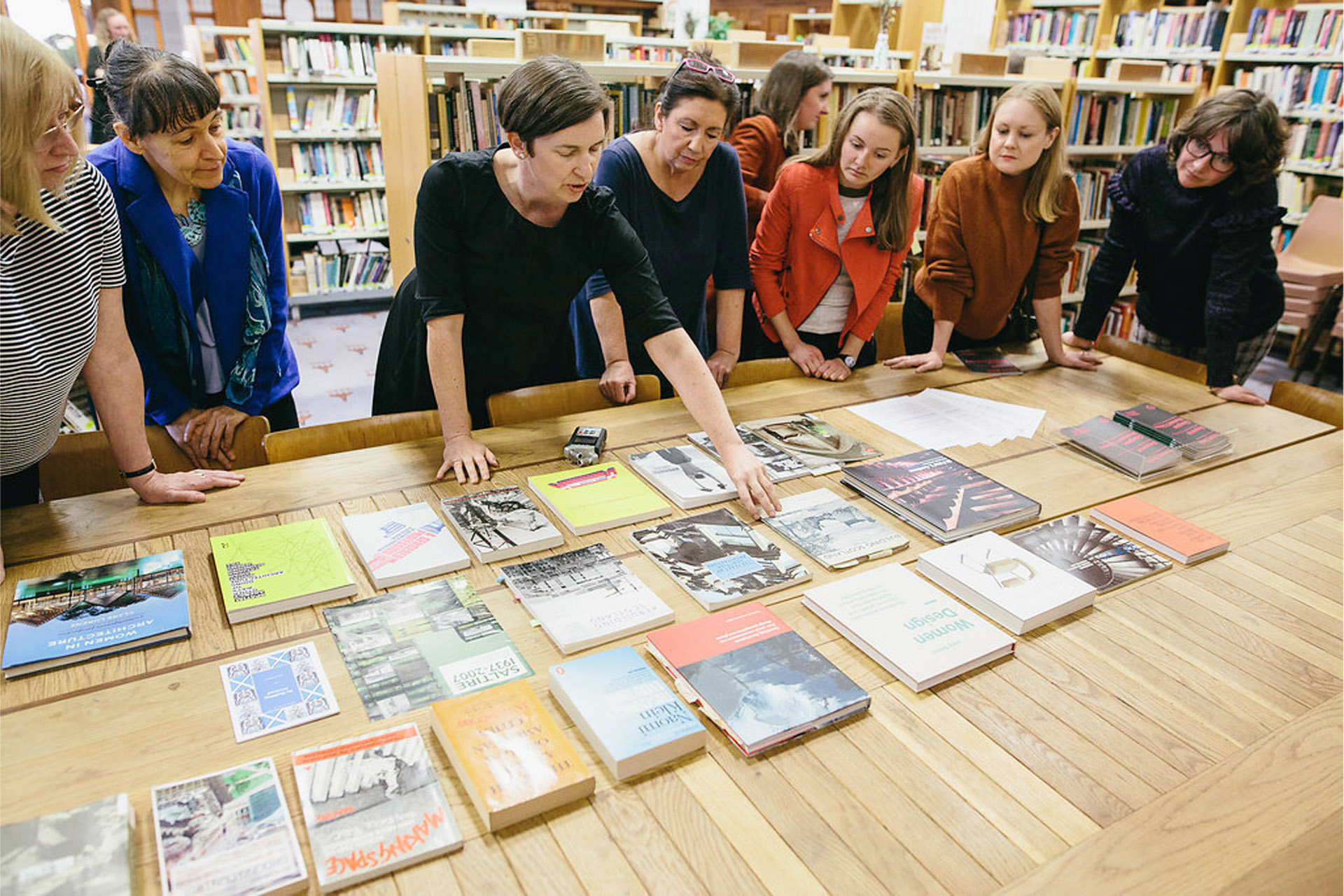In celebration of International Women’s Day 2021, Stage 3 BA (Hons) Architecture student, Amy Gillespie, has shared moments of a recent interview with Jude Barber, Architect and Director of Collective Architecture.
By Amy Gillespie
This International Women’s Day serves as a reminder to us all that architecture is a patriarchal world, and we have a long way to go to achieve full gender parity.
For my undergraduate dissertation, I interviewed several female architects about their experience within architecture, one of whom was Jude Barber who is a Director at Collective Architecture in Glasgow and Edinburgh and ran for RIBA President in 2020, (won by Simon Allford).
During our interview, Jude and I discussed many things ranging from early student experiences to current working life.
On education, Jude recounts her first time in an architectural office as a young, 15-year-old, woman on work experience.
“I was the only woman, (in my local Council’s architectural department), working within an office floorplate of hundreds of men at drawing boards …. I have one mortifying memory of getting out of the lift during lunchbreak on my first week. There are all these guys waiting in a group to get in. One of them was the father of a girl in my swim team. He shouted out ‘whoa, whoa, didn’t recognise you there with your clothes on!’ And of course, everyone burst out laughing. It was a joke for them of course, and probably nothing anyone gave a second thought to at the time, but for me it was really embarrassing.”
The sexualisation of women in the workplace is something that we have all encountered, and even during education, there have been times when off-hand comments are made during lectures that leave one feeling uncomfortable and vulnerable. Jude clarified that her time on work experience had been good overall. The lift moment was a single experience she had brushed off and put to the side. However, these experiences stay with us as women and build up over time.
When discussing incidents in the workplace Jude also informed me about another experience.
“I was involved in this panel and had called a meeting to discuss issues I felt hadn’t been working that well. Before the meeting, myself and fellow panel members were sitting in the lobby, waiting to go to in. A woman walked past wearing fishnet tights and one of the older men leant over and quietly said, “Oh you should get yourself some of those Jude.” Once again, this was just short, throw away comment. But what was he thinking? And what did this have to do with anything we were there to discuss?’
On reflection, Jude mentioned that instances such as this – along with other factors – affected her to the degree that she more actively considered her own appearance in the workplace to try to avoid comments.
“In my early days in practice, I cut my hair short, covered up, stopped wearing makeup. I often tried not attract attention in terms of dress and appearance.”
Jude recognises that this reaction was not driven by any individual experience or ‘moment’ – but through accumulation. Over time, she notes that she has developed a more confident and nuanced attitude towards work, dress and public life.
It can be so easy, as women, to be furious about the inequalities we face. That we must experience the suppression of our bodies due to the sexualization that men force upon our image. That male aggression and prejudice can be brushed off as ‘banter’. That we occupy only 10% of the top-level jobs in architecture firms. That we earn 15.9% less than our male counterparts. I could continue to list off the various ways in which we are discriminated against, but it would be never ending. I sincerely hope that this has opened your eyes to the injustices at play in our world, and that you go on to read more about it, as there are so many resources available at the tip of our fingers.
By Amy Gillespie
IMAGE CREDIT: JUDE BARBER AT GLASGOW WOMEN’S LIBRARY BY SEQUOIA HEARNE VIA PANEL

